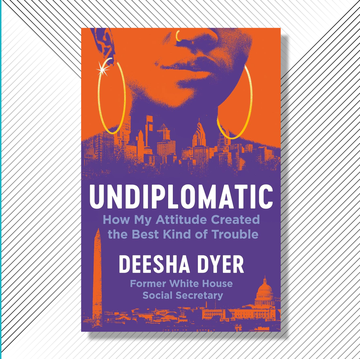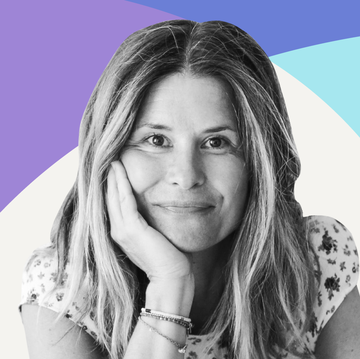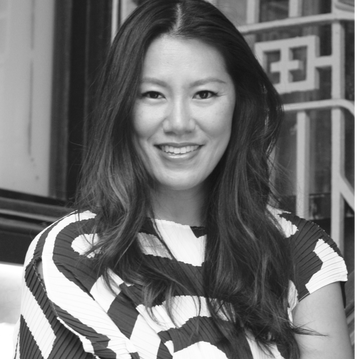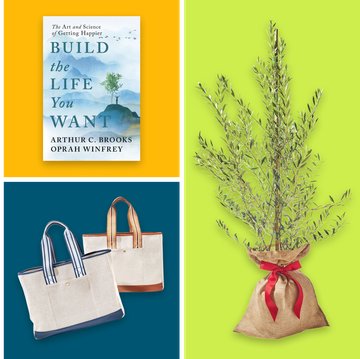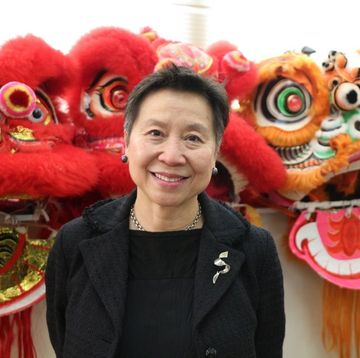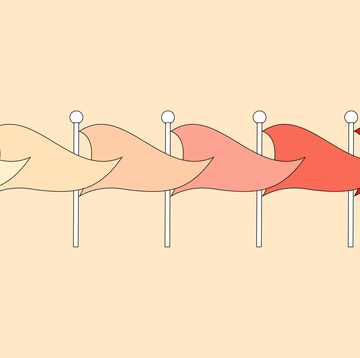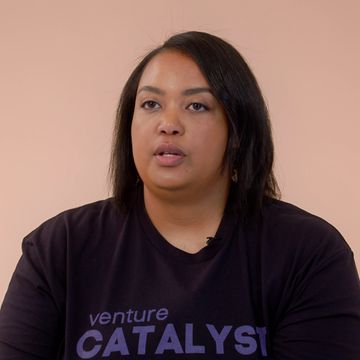Ask yourself when was the last time you uttered the phrase: "I'll be happy when I..." Probably recently, right?
Whether the end of that statement includes getting "a better car," or "a bigger house," or finding "true love" or "the dream job," we're all guilty of delaying our joy and gratification based on a future outcome. Many of us believe a certain relationship status or a higher salary is the singular key to being fulfilled.
Turns out, this way of thinking has a name: It's called the "I'll be happy when" syndrome, a condition that's prevalent today in our working society.
ABC News reported that happiness (or unhappiness) is broken down into the following percentages: About 50 percent is based on genetic makeup, 40 percent is within your control determined by your thoughts and actions, and the remaining 10 percent is related to other circumstances like income, where you live, marital status, and your appearance.
Despite the "I'll be happy when" thought pattern being a universally shared behavior, clinical psychologist and business consultant Dr. Natalia Peart argues that the way we feel right now shouldn't be a result of what we believe is coming down the pipeline. In fact, Dr. Peart, who graduated from Georgetown University, Harvard Medical School, and Brown University, suggests that happiness isn’t the direct effect—it’s actually the cause.
Fortunately, even if you do suffer from "I'll be happy when" syndrome, Dr. Peart asserts in her book, FutureProofed: How To Navigate Disruptive Change, Find Calm in Chaos, and Succeed in Work & Life that there are plenty of ways to treat it.
"To cure 'I'll be happy when' syndrome, we must start seeing success as a lifestyle, not a destination, so that you can finally be happy now—wherever you are in life," she explains in the book.
Here, Dr. Peart discusses the most common symptoms to look out for, why you should rip up your to-do list, and how best to maneuver through change and disruption in the dizzying world of technology and social media. She also shares expert advice on finding happiness right where you are.
Now that we finally know this condition has a name, can you explain what, exactly, "I’ll be happy when" syndrome is?
"For decades, we've always thought that once we achieve success in our careers, then we're supposed to get happy. And that once we get happy, we're going be fulfilled. That was the old path. So we'd ignore signs of burnout or the fact that our lives were so narrow, because the assumption was that there would still be a reward of happiness. But that reward was always in the future. Happiness is now and being able to live in this moment, even in the harried, busy life that we live. You want to get up everyday and know that there’s some level of meaning in the now—not two months or two years from now."
What are the symptoms people should look out for?
"Well, the first sign is determining whether you're living a checklist-based life. If you think back to when you were a teenager, yes, you went to school. But you also did other activities and had fun. It seems the older we get, the more we seem to push the fun things out to crowd our lives with what's on our to-do lists."
Can you elaborate more on this checklist lifestyle? Do you have any suggestions for managing your day-to-day responsibilities while still having fun?
"A checklist includes all the things you must do. But you should really think of your life as a calendar, not necessarily a to-do list. A calendar makes room for all those tasks, but it also allows space and time for restorative activities. The problem with a list is that it involves someone else’s deadline, and any subsequent consequences to not meeting those expectations. By thinking of your life as a calendar, you can prioritize things as you go along. That’s why I’m not a fan of the term 'work-life balance,' because you're made to feel like you're doing something wrong if you don’t divvy things up correctly."
Is there any danger in being routine-driven?
"By only looking at what you have to do today or this week, you're not thinking about your long-term vision. When you have your head down doing the next thing, you can’t see yourself moving towards the bigger picture and what matters most to you. That results in burnout and stress. If it feels stressful, or you find yourself constantly monitoring the time instead of being fully engaged and in the flow of things, that's when you know you're off track. As adults, we’ve lost that sense of connecting to who and what we are—especially women. Women, in a way, are encouraged to feel guilty. It’s like a badge of honor if we show up for everyone else except ourselves."
So how does one begin to alter their way of thinking or adopting this calendar approach?
"First, you need to have an agile mindset. It’s about developing the inner confidence that says, 'I’m going to look at a situation and think about what can I do to move towards the next step.' The old mentality of lining up our ducks in a row before we took action, or waiting until everything is perfect doesn't work because we're in a different time now. You cannot wait until everything looks right and is set in place. You have to be able to walk in uncertainty and separate yourself from the outcome, even if you don't have all the pieces together yet."
But what happens if the "when" never comes? How does one manage their expectations for failure or letdowns?
"The first thing to know is that this disappointment of never getting to happy, even when you're checking things off the list, is very common. One big reason this happens is that we base our life goals and the expectation for happiness on the decisions we made when we were teenagers, like our college major and our first job. If you're in this situation, step back and ask yourself bigger questions. For example: What do you care about, or what inspires you? This way, you can better orient yourself toward what is meaningful to you, and not just toward the "when" you've built up over the years. Lastly, you should build daily habits that reflect the things that are a priority for you right now."
Why is living in the moment so important? And for those who need help focusing on their "right-now" goals, what's your advice?
"When you talk about right now, it’s about focusing on whether the things you’re doing are adding energy to your present goals or draining you of your energy to accomplish them. Don’t major in the minors, wasting time on things that aren’t of significance. Get a visual snapshot in your head of where you are and where you want to go in your career or with your fitness goals and finances. If you’re not happy, then you need to create and prioritize new habits around one or two restorative things. Turn to supportive people to hold you accountable who will cheer you on from the frontlines. You also have to make choices about what you’re willing to let go of, and adjust your expectations. But when you get to this step, you can’t give in to fear or fatigue—or quit when you hit roadblocks."
What role do you see technology and social media playing in this disconnection from our true selves?
"What happens with technology and social media is that you end up curating your life, not living it. There’s something about the social comparisons that are making things worse, particularly with the 'I'll be happy when' syndrome. Decades ago, when we didn’t have social media, we’d only be concerned about who got married or had a baby first. Those were the success markers. Today, however, we’re comparing our lives to what someone else is posting, which is contributing to our high-stress culture. At the end of the day, it’s a glossy version of a highlight reel you’re supposed to measure up to. But there’s no way you’ll ever live up to it because it’s not real."
Why the title, Future Proofed, for your book?
"We are living in times of constant and rapid change. It’s about understanding what to do today, with an eye towards anticipating tomorrow. The concept of future proofing your life is about having a peace of mind and sense of control, so that no matter what’s coming around the corner you understand how to maintain a sense of calm."
In the book you talk about the "freelance economy." What is that, and how does it impact the everyday working woman?
"The way we think about our careers has changed. It’s no longer about having one career for the rest of your life. When women took off to have kids, they were particularly disadvantaged when trying to get back on track. I encourage people to strategize and think of a playbook. Instead of focusing on a job title, think about the value, skills, and talents you offer. In this freelance economy, it means keeping the bigger picture in mind, while also being flexible for twists and turns on the way to achieving your greater vision."
What empowers and energizes you at the present moment?
"I’m deeply mission-driven. I believe that each of us should have the chance or the opportunity to fulfill our potential in life. In my book, I write this quote: 'Someone else paid the cost.' Even though my burden is heavy with responsibility, I gladly accept it, because someone else did the same for me and all of us. And now it's our turn, especially in these times of great change."



